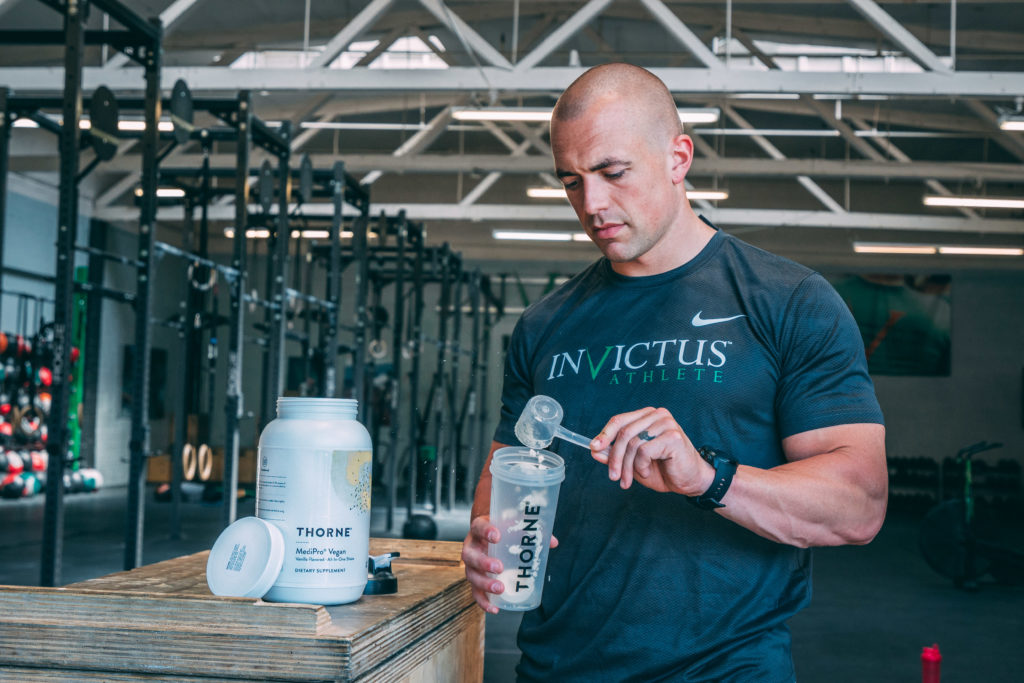
Timing Isn’t Everything
Written by Connor Nellans
As a coach I often get asked about pre-workout nutrition. A person may come to me and say something along the lines of, “My workout just didn’t feel great today. Maybe I’m not eating the right thing before coming to the gym. What do you think?”
Though this can be an important piece of the puzzle, it is just that, a piece in our nutrition puzzle, and for most, a rather small one. So instead of focusing on the small puzzle piece of what we are eating 60-90 minutes before the gym, let’s instead focus on the other 23 hours of the day first. If you are like most of our readers and you fall into one or more of these camps:
-You exercise to be healthy and feel well.
-You have modest goals around your fitness performance.
-You don’t require any unique food prescriptions due to a physiological need.
You are probably better suited to instead focus on the bigger pieces of the puzzle: eating the correct portion sizes at each meal and eliminating any nutrient deficiencies.
Dietary Deficiencies
When it comes to dietary deficiencies, the bottom line is that they are extremely common and that no matter how well-rounded your diet may be, chances are you still have one. Being deficient in one or more nutrient can have a big impact on how you feel on a day-to-day basis and could very well be the culprit for feeling sluggish in the gym.
So what are the most common nutrient deficiencies people should be focused on? The simplicity of the answer may surprise you:
-Water
-Protein
-Fatty acids
-Vitamins and minerals such as vitamin D, vitamin E, calcium, zinc & magnesium
These are the low hanging fruit of the nutrient deficiency world and you could start making your body feel much better on a day-to-day basis if you make sure to get adequate levels in these areas. The best part is that making corrections in these areas is very simple and easy!
Water
First, let’s focus on drinking more hydrating fluids. Half of your bodyweight in ounces is a great goal to shoot for! So if you weigh 160 lbs, try to get 80 oz of water per day. Further, try adding a pinch of Himalayan Pink Salt or Celtic Sea Salt to your drinking water to allow your body to hang on to minerals and not flush them out as you drink water throughout the day.
Protein
When it comes to protein, simply eat more of your preferred protein source (reference back to the portion control article for more details on what that looks like)! When preparing meals for the day, put two or one and a half servings of your protein choice in your meal instead of one. Another great strategy is adding in a protein shake between meals. A good goal to shoot for is 1 gram of protein for each pound of lean body mass.
Fatty Acids
The best way to get the correct amount of fatty acids is to find a high quality fish or algae oil supplement that you can begin to use to increase your intake in this area. To find a high quality fish oil, Duffy MacKay, ND, vice president of scientific and regulatory affairs at the Council for Responsible Nutrition, suggests, “Look for companies that disclose their results for testing for environmental contaminants. Look for supplements that have third-party verification, such as USP. Bite into the capsule to make sure it tastes fresh and not ‘fishy.’” (1) For these reasons, we recommend supplements from Thorne Research. A good daily minimum to shoot for is 250-500mg combined EPA and DHA. (2) You may experiment with this number slightly as some resources recommend closer to 2-3 g/day combined EPA and DHA. (3)
Vitamins & Minerals
Vitamins and minerals are again a straightforward fix. Eat more of the foods that are high density in vitamins and minerals. Think vegetables, fruits, nuts, seeds, high quality meat and seafood (organ meats are a fantastic source of vitamins and minerals if you are into that sort of thing!) and even teas. If you find that your diet lacks this variety, you are likely suffering from a deficiency in this area.
As you can see, the beauty of solving nutrient deficiency is that they don’t have to be overly complicated changes! If we can make these few basic changes to our diets we could begin to see positive changes in our body composition, sleep quality, energy levels, and performance inside of the gym. Give these a shot and see how they may help you feel better on a day-to-day basis!
Let’s see if these changes can make you feel better in the gym during those days where you once felt sluggish. Keep a journal or workout log where you can take note of how you are feeling on a daily basis in the gym. This can be as simple as a continued note in your phone or adding a section to your workout log where you track how you feel on a scale of 1-10, 1 being not well and 10 being your most well. Once we have made these changes part of our everyday life, then we can move forward to tackle nutrient timing around our workouts if those sluggish days are still a regular occurrence.
Do you have a nutrition-related goal or need more help with a personalized plan? We’ve got you covered – the Invictus Nutrition Program starts on January 7th!
Resources
https://www.webmd.com/diet/news/20111206/some-fish-oil-supplements-fishy-on-quality#2
https://efsa.onlinelibrary.wiley.com/doi/abs/10.2903/j.efsa.2012.2815
https://www.who.int/nutrition/topics/FFA_summary_rec_conclusion.pdf?ua=1
